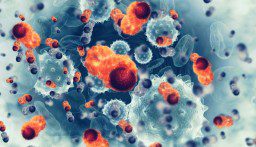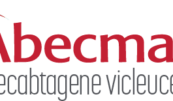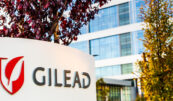High CR rates are overcome by CD22-directed CAR T-Cell therapy against CD19 relapse in LBCL
In February 2023, a phase 1 trial at a single institution found that it was safe and possible for people with heavily pretreated large B-cell lymphoma (LBCL) to use CD22-directed chimeric antigen receptor (CAR) T-cell therapy after relapse on CD19-directed CAR T-cell therapy. In addition, patients exhibited high overall response rates (ORRs), and complete responses (CRs) in these patients were found to be durable.
A presentation by lead study author Matthew J. Frank, MD, PhD, assistant professor of medicine in the Division of Bone Marrow Transplant & Cellular Therapy at the Stanford Cancer Institute, said, “A single infusion of CAR22 produced high response rates in heavily pretreated large B-cell lymphoma patients who relapsed after CAR19.” Frank is the director of the study and an assistant professor of medicine.
CD19-directed CAR T-cell therapy has led to significant responses in patients with relapsed/refractory LBCL; however, if relapse occurs, patients have a very poor prognosis, and many exhibit CD19 loss or reduced expression.
Frank stated, “There is a dearth of curative therapies administered after chronic relapse.” Given the poor prognosis of patients who relapse after receiving carnitine therapies, there is an urgent unmet demand for novel therapies.
CD22 is of interest as a target for CAR T-cell therapy as it can be found on the surface of malignant B cells in 95% of B-cell acute lymphoblastic leukaemias (ALLs) and LBCLs. CD22-directed CAR T-cell therapy has already demonstrated high response rates in patients with heavily pretreated ALL.
Adults with B-cell ALL and B-cell non-Hodgkin lymphoma were enrolled in the dose-escalation phase 1 study of CAR T-cell therapy directed at CD22. Frank presented at the Tandem Meetings the results of the LBCL cohort.
All patients in the cohort had relapsed/refractory LBCL, including diffuse LBCL not otherwise specified, transformed follicular lymphoma, marginal zone lymphoma, chronic lymphocytic leukemia/small lymphocytic lymphoma, primary mediastinal B-cell lymphoma, and secondary central nervous system involvement. In addition, patients were resistant to CD19-directed CAR T-cell therapy or had CD19-negative disease in conjunction with any CD22 expression. Patients who had previously received CAR T-cell therapy had to have at least 30 days passed since their last infusion and less than 5% CAR-positive cells in their peripheral blood, according to flow cytometry.
Patients received either 1 x 106 (dose level 1) or 3 x 106 (dose level 2) of the CD22-targeted drug (dose level 2). Prior to infusion, patients received intravenous fludarabine (30 mg/m2) and cyclophosphamide (500 mg) to administer lymphodepleting chemotherapy.
The primary objectives of the study were manufacturing feasibility, the phase 2 dose recommendation, safety, and toxicity. The investigator-assessed ORR, duration of response, progression-free survival (PFS), overall survival (OS), CAR T associated toxicity, CD22 antigen expression, CAR-positive cell levels in the blood, and serum cytokine profiling were secondary endpoints.
Of 41 enrolled patients, the CAR T-cell product was successfully manufactured for 38 (95%), as 2 had insufficient T cells for leukapheresis. The average duration between leukapheresis and infusion was 18 days.
The median age of participants who received CAR T-cell therapy was 65 (range, 25-84), they had an ECOG performance status of 0 or 1, and they had received a median of 4 prior lines of therapy (range, 3-8). 74% of patients had diffuse LBCL, and 21% had transformed follicular lymphoma. 39% of patients were diagnosed with non-germinal centre B-cell-like disease, and 18% had double-hit status. 97% of patients had previously received CD19-directed CAR T-cell therapy, and 18% had previously undergone autologous hematopoietic stem cell transplantation. 29 percent of patients did not achieve a CR to any prior therapy.
The median follow-up time for all patients was 18.4 months (range: 1.5-38.6), at which point the ORR was 68% and the CR rate was 53%. The median PFS was 2.9 months (95% confidence interval [CI], 1.7-NR) and the median OS was 22.5 months (95% CI, 8.3-NR).
At dose level 1 (n = 29), patients were followed for a median of 14.1 months (range, 1.5-38.6), demonstrating a 66% ORR and a 52% CR rate. Median progression-free survival was 3.0 months (95% CI, 1.6-NR) and median overall survival was NR (95% CI, 8.3-NR).
At dose level 2 (n = 9), the median follow-up was 27.1 months (range: 24.7-33.5), the ORR was 78%, and the CR rate was 55%. The median PFS was 2.6 months (95% confidence interval: 1.3-NR) and the median OS was 22.5 months (95% confidence interval: 5.5-NR).
Only 1 of the 20 patients who achieved a CR had relapsed as of the data cutoff, indicating that CRs are durable. By the third month, all patients who had made progress on treatment had done so.
In 95% of patients, cytokine release syndrome was observed, with grade 1 events occurring in 37%, grade 2 in 55%, and grade 3 in 3%. 8% of patients experienced neurologic events of grade 1 severity, while 5% experienced events of grade 2 severity. 18% of patients also reported toxicity resembling hemophagocytic lymphohistiocytosis.
One patient at dose level 2 died of sepsis on day 40, and one patient developed treatment-related myelodysplasia/acute myeloid leukaemia without evidence of LBCL relapse 11 months after receiving CD22-directed therapy.
The recommended dose level for phase 2 was determined to be 1.
Previously published information detailed the treatment of the first three patients.
All two patients had high-risk characteristics and have received at least five prior treatment lines, including CD19-directed CAR T-cell therapy. One of the patients had previously received two CAR T-cell therapies, the second of which targeted CD19 and CD20. All three patients achieved a CR, with patient 3 achieving a CR on day 28. CRs were kept for more than three years.
Frank also noted that “the spread of CAR22 is tenfold greater and more persistent than CAR19.”
To learn more about patients who have relapsed after CD19-directed CAR T-cell therapy, a planned multicenter phase 2 trial of this agent is being set up. The trial will likely begin this summer.
References
1. Frank MJ, Sahaf B, Baird J, et al. CD22 CAR T cell therapy induces durable remissions in patients with large B cell lymphoma who relapse after CD19 CAR T cell therapy. Presented at: 2023 Transplantation & Cellular Therapy Meetings of ASTCT and CIBMTR; February 15-19, 2023; Orlando, FL. Abstract 2.
2. Baird JH, Frank MJ, Craig J, et al. CD22-directed CAR T-cell therapy induces complete remissions in CD19-directed CAR-refractory large B-cell lymphoma. Blood. 2021;137(17):2321-2325. doi:10.1182/blood.2020009432
Susan Hau is a distinguished researcher in the field of cancer cell therapy, with a particular focus on T cell-based approaches and cancer vaccines. Her work spans several innovative treatment modalities, including CAR T-cell therapy, TIL (Tumor-Infiltrating Lymphocyte) therapy, and NK (Natural Killer) cell therapy.
Hau's expertise lies in cancer cell biology, where she has made significant contributions to understanding the complex interactions between immune cells and tumors.
Her research aims to enhance the efficacy of immunotherapies by manipulating the tumor microenvironment and exploring novel ways to activate and direct immune responses against cancer cells.
Throughout her career, Hau has collaborated with leading professors and researchers in the field of cancer treatment, both in the United States and China.
These international experiences have broadened her perspective and contributed to her innovative approach to cancer therapy development.
Hau's work is particularly focused on addressing the challenges of treating advanced and metastatic cancers. She has been involved in clinical trials evaluating the safety and efficacy of various immunotherapy approaches, including the promising Gamma Delta T cell therapy.
- Comments Closed
- February 23rd, 2023






CD19-directed CAR T-cell therapy, CD22 CAR T, Large B-cell lymphoma, Matthew J. Frank, NCT04088890
CancerFax is the most trusted online platform dedicated to connecting individuals facing advanced-stage cancer with groundbreaking cell therapies.
Send your medical reports and get a free analysis.
🌟 Join us in the fight against cancer! 🌟
Привет,
CancerFax — это самая надежная онлайн-платформа, призванная предоставить людям, столкнувшимся с раком на поздних стадиях, доступ к революционным клеточным методам лечения.
Отправьте свои медицинские заключения и получите бесплатный анализ.
🌟 Присоединяйтесь к нам в борьбе с раком! 🌟